'Main Goal for This Academic Year is To Develop Educational and Research Programmes'
The editorial staff of HSE University-St Petersburg are looking forward to the new academic year as much as students and professors are. We are sure that it will be very eventful: there are exciting research projects, new educational partnerships and interesting scientific conferences waiting for HSE students. To mark the holiday, we have talked to deans, academic supervisors of educational programmes and research units about their expectations for the next year.
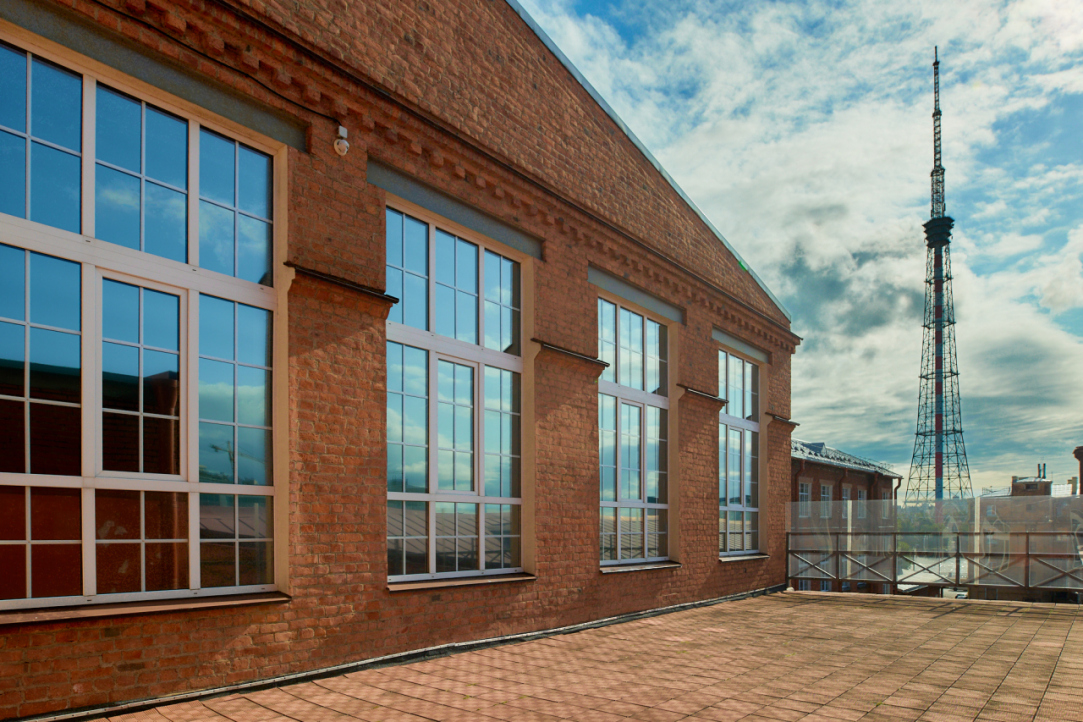
Alexander Sorokin, Dean of the School of Social Sciences
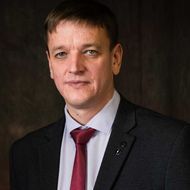
The School of Social Sciences is unique in its combination of research and education, broad internationalisation and network projects with scientific organisations, authorities and companies in the economic sector. In the upcoming year, we plan to maintain our strong directions of development and start new ones. We are actively cooperating with colleagues from India, Central Asia and the countries of Latin America. Among the plans are the second expedition to the Indian Himalayas, the Winter School in partnership with UPES University and a series of lectures and seminars for Indian students.
We also want to develop the directions which haven't been active in our school yet: in particular, projects in the sphere of continuing education. They open opportunities for collaborations within campus, with other top universities and companies in Russia and worldwide. Cooperation with the existing partners is still valuable for us. We will strengthen our relations with them via new joint projects, research and meetings. For this as well, we intend to organise and hold a major academic conference in 2025 but how it will go—we will tell you a little later. Let it be a pleasant surprise!
For the upcoming academic year, I want to wish each of you luck and courage to implement your projects. I am always open to our students and staff.
Alexey Zhukov, Academic Supervisor of the International Laboratory of Quantum Optoelectronics
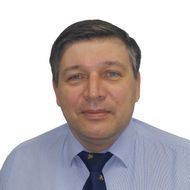
At first, I plan to meet a new cohort of students who joined our Bachelor's programme 'Physics'. They might have some expectations which we should quickly take into account. Then, in mid-September, I will attend the School of Young Scientists which is held in the framework of the All-Russian Forum 'Microelectronics' on the territory of Sirius. They asked me to deliver an invited report. Microelectronics is perhaps the closest field of science and technics to the direction we engage in. But in Microelectronics, signals are transmitted and processed with the help of electrons, and in our sphere—optoelectronics—the main role is given to photons, while electrons are secondary. Now, we pay a lot of attention to attempts to create optoelectronic integrated circuits, which basically means the synthesis of micro- and optoelectronics.
We applied for a joint project with the Beijing University of Post and Telecommunications (BUPT) devoted to lasers on silicon for optoelectronic integrated circuits in particular. I don't know if the project will be selected or not. But anyway, we will promote this direction and partnership—we are likely to visit them in early November. Last year, we started our joint project with the colleagues from B. I. Stepanov Institute of Physics, NASB exactly this way. We will study nitride-based microlasers. I really hope there will be good results.
Of course, I wish everyone to be successful in this upcoming academic year. May students like their professors, and professors—their students. I wish all laboratories to start new interesting projects and get the necessary equipment.
Liudmila Veselova, Academic Supervisor of the Master's programme 'International Business in the Asia-Pacific Region'
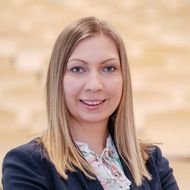
The first thing I will do at the beginning of the academic year is to breathe out. There is a common fallacy that in summer, professors have a great rest and enjoy sunny days. In fact, it is not really true. During the academic year, we are so busy that we don't have the time to write articles, finish monographs, or meet colleagues and partners. This summer was especially eventful for me. We have launched several projects and held some negotiations, including the ones on opportunities for a double-degree programme in our master's programme. Besides, this summer, I participated in several conferences—for instance, the II International Buddhist Forum held in Buryatia. The start of an academic year for me is an opportunity to standardize my work schedule and even reduce a little the intensity of work which I kept during the summer.
Our programme has grand plans. We are actively negotiating with the leading Chinese university, and we hope to sign an agreement for a double-degree programme during the upcoming academic year. In addition, we have already planned out a Winter School in Indonesia with our partner—the Institut Teknologi Sepuluh Nopember (ITS), and in January, a Winter School will take place at the Ahmedabad University in India. I am sure that this will help students to learn more about the Asia-Pacific region, communicate with colleagues and enhance the skills of intercultural communication. Our master's programme is developing, and this year, among the elective courses will be another Eastern language—Hindi. Besides, in 2025, our programme will graduate the first cohort of students.
This year, once again, we will welcome students from completely different cities in Russia and countries—from Italy to Ghana. Our programme is one of the most international at the university as more than 50% of our students are foreign nationals. That is why I want to wish all students harmony, calmness, development of intercultural skills and, of course, endless pleasure from studying at HSE University and communicating with professors who have prepared the most interesting courses for students. I also wish sound health, research success and inspiration to my colleagues. May the whole academic year pass easily and in one breath!
Maria Soloshcheva, Academic Supervisor of the Bachelor's programme ‘Asian and African Studies'
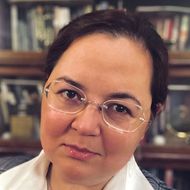
I will start the year with traditional meetings with each of the five cohorts of 'Asian and African Studies' to explain what awaits students in the upcoming year. We plan to introduce AI technologies in the educational process of the Institute for Asian and African Studies. This summer, I have completed the continuing professional development courses on AI and defined the courses in which we can effectively implement these technologies. Together with colleagues, we will organise seminars to discuss how successful this process will be going and which practices will be the most efficient.
Besides, the programme 'Asian and African Studies' will launch new educational tracks on economics, political science, international relations, culture and art, sociology as well as philosophy and religious studies of the Asian and African countries. The students choose them at the end of the second year, and the tracks are carried out in the 3-5th years of studies. The chosen tracks influence not only the courses which our students will attend but also the topic of individual research, thesis, types and places of internships.
For this year, I wish all of us, professors and students, the external circumstances to contribute to the implementation of the planned. Together we can do anything!
Adrian Selin, Dean of the School of Arts and Humanities

First of all, I will meet students, especially the first-years of all bachelor's programmes. I don't really like long official speeches but I need to meet these students. Students should know the faces of administrative and educational units, we are on their side.
The main goal for this academic year is to develop educational and research programmes. These programmes do not simply exist for students—they are interesting for them. Active involvement of students in research is the most important way of their adaptation, including the social one. So, we are going to develop the existing research seminars—historical-philological and the one on media communications. Shortly, we will have visible results of all that. Together with historians and philologists, we launch an editorial series 'Monumenta Rossica Moderna'. We are going to make it cause a serious resonance.
Besides, in the existing programmes, we will try to invest seriously in the track on Latin America. I think that international ties must be an appealing factor for the programme development, especially—for the bachelor's programme. I will draw your attention to a very important, in this case, support of the university.
In the next year, we will also negotiate the creation of new educational programmes: bachelor's programmes in History of Arts and Foreign Languages, master's programmes in Translation and, perhaps, History of Arts. I really hope to open a PhD programme in Linguistics—we see apparent success of the linguistic master's programme. The appearance of PhD programmes at HSE University-St Petersburg is important for the current students as an orienting point for their future studies and research.
First of all, I'd like to wish students and colleagues to stay who they are. But at the same time, change as well—not only by reacting to challenges but also by improving yourselves. It seems to me that the atmosphere which one can feel at the university and, I hope, at the faculty, helps to make it the norm of life.
Elena Omelchenko, Director of the Centre for Youth Studies
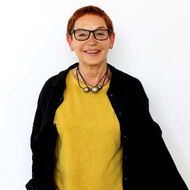
At the beginning of the year, I will try to bring thoughts and feelings in order, and tune in to a new stage of work and life: I'll have a look at the plans I wrote down for the previous academic year and put all that's left in a new notebook... It's the same each year, there are always some debts left. Then, of course, I will be waiting for the meeting with the first-years of our Master's programme 'Modern Social Analysis'. It is always heart-pounding. The competition was intense, the selection was difficult—I am sure the group will be strong and enthusiastic.
This October, our centre will turn 15! This journey was extremely interesting, eventful and fruitful. We will go further and higher. The most important thing is our team. We are not only passionate researchers and scientists but also real friends. Thus, the main goal is to maintain this atmosphere, do not get lost and do not lose each other.
In this anniversary year, the key event will be our International Conference, the format of which will include both traditional elements—panels, sessions, film presentations—and new, unexpected aspects. But I won't reveal all the secrets. Apply, it will be awesome! Besides, we have started a new project supported by the RSF grant, which means that there is the favourite time of our centre ahead—expeditions, shooting films and observations of the youth's life, this time—in the North Caucasus. Already in September, my colleagues will go to Nalchik and Pyatigorsk. Of course, one of the most important tasks for us is always writing articles, and in this field, we have grand plans!
To everyone—myself, students and colleagues—I wish not to be afraid of challenges and do what you can and love, what brings you intellectual and any other pleasure. The most important thing is to value yourself. For students, the most unforgettable stage is coming: days and months of the eventful student life, so boldly move forward. Moreover, all of us are at HSE University, and not just anywhere but in St Petersburg!

